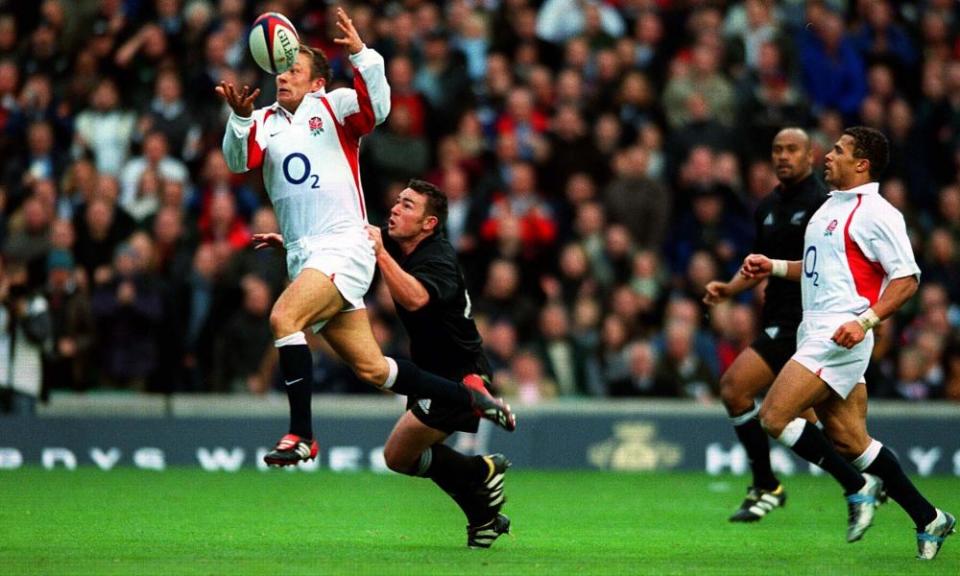Rugby Union: Delicate days for England as they head into November series

There are two schools of thought before the November internationals. According to Eddie Jones, the Tests are mere sparring sessions as preparation for next year’s World Cup in Japan. Those who have paid serious money to watch the All Blacks tackle England and Ireland beg to differ, preferring here and now evidence to pie in the sky potential.
The truth lies somewhere in the middle. Rare is the northern hemisphere side who drag their feet through the autumn leaves and still go on to conquer the world within 12 months. There is a particularly strong correlation between England’s November form and their World Cup destiny stretching back years.
In the autumn before their 2003 triumph, Clive Woodward’s squad dispatched New Zealand, Australia and South Africa on successive Twickenham weekends, scoring almost 39 points per game on average. In 2010 and 2014 they went down to the All Blacks and South Africa and never quite regathered sufficient momentum.
Who could possibly argue, too, that Ireland will be no further forward psychologically if they beat New Zealand in Dublin on 17 November or that victory over the Wallabies on Saturday week is irrelevant to Welsh morale? Try telling the respective players of Italy and Georgia, furthermore, that their fixture in Florence on the same day will have nil impact on the debate about Six Nations promotion and relegation. To dismiss any of those encounters as sparring sessions would be insultingly fake news.
England, either way, risk straying into punchbag territory if they perform abjectly on the next two Saturdays. Losing to the All Blacks is an occupational hazard but defeat first up at home to a Springboks side shorn of several key individuals? Nor can the body language and energy levels of Jones’s players after their lengthy warm-weather training camp in the Algarve afford to be downbeat. Start sluggishly and they may find themselves camping in Aldershot next time.
Saturday Wales v Scotland (Principality Stadium, Cardiff), England v South Africa (Twickenham, London), Ireland v Italy (Soldier Field, Chicago)
November 10 Italy v Georgia (Stadio Artemio Franchi, Florence), Scotland v Fiji (Murrayfield, Edinburgh), England v New Zealand (Twickenham), Wales v Australia (Principality Stadium), Ireland v Argentina (Aviva Stadium, Dublin), France v South Africa (Stade de France, Paris)
November 17 Italy v Australia (Stadio Euganeo, Padua), Wales v Tonga (Principality Stadium), England v Japan (Twickenham), Scotland v South Africa (Murrayfield), Ireland v New Zealand (Aviva Stadium), France v Argentina (Stade Mauroy, Lille)
November 24 Italy v New Zealand (Stadio Olimpico, Rome), Scotland v Argentina (Murrayfield), England v Australia (Twickenham), Wales v South Africa (Principality Stadium), Ireland v United States (Aviva Stadium), France v Fiji (Stade de France)
England are missing some key men themselves, particularly in the pack but, after five defeats in their past six Tests, there comes a time when all involved need to front up or step aside. In Portugal these past few days there have been some encouraging signs, not least in terms of the players’ collective conditioning. Those still standing look encouragingly fit, if that is not too much of a tautology.
Some within the Rugby Football Union are also suggesting there is less pressure on the squad than there might normally be. Give it a good rattle against a physical South Africa and prove competitive against the All Blacks and, if nothing else, Jones will have competition for places when the Vunipolas and others return. The dark clouds, some argue, will only gather in earnest if England contrive to lose either of their final games to Japan or an underperforming Australia.
Maybe, but with a trip to Dublin awaiting Jones’s squad on the opening weekend of the 2019 Six Nations, these remain delicate days in terms of English confidence. Recruiting Will Carling as a leadership guru is all very well but, less than a year out from a World Cup, it does not smack of “steady as she goes” serenity. Both Ireland and Wales are ahead of England in the world rankings, with the power to add in the coming weeks. England, even if their results are not flawless, should be performing better and more consistently than they are.
The Irish, admittedly, have yet to crack the World Cup code but their showdown with New Zealand will be instructive on both sides. Without the absent Conor Murray at scrum-half will they be quite as formidable or is their Leinster core steely enough to cope? Will Johnny Sexton upstage Beauden Barrett again? It is a clear sign of the times when the Aviva Stadium, rather than Twickenham, is due to stage the month’s most eagerly-anticipated encounter. Having already lost to the Springboks in Wellington last month, the All Blacks may just be heading for another fall.
This would also be a good moment for Warren Gatland’s improving Wales and Gregor Townsend’s enterprising Scotland to lay down some significant markers, though precisely where Saturday’s fixture between the teams in Cardiff fits into the equation is debatable. Thankfully the WRU and SRU have jointly pledged to donate a six-figure sum to Doddie Weir’s foundation from the proceeds of the game but arranging to play it outside the Test window on a Pro14 weekend has further highlighted the fault lines within the modern international game.
Should an understrength Ireland second team really be playing Italy in Chicago this weekend? Will the RFU be reimbursing those fans who bought tickets fully expecting to see the English-based Faf de Klerk, Willie le Roux and Vincent Koch representing a fully-loaded South Africa? Will stricter high-tackle interpretations lead to 13-a-side contests? Suddenly we are back into the murky world of experimental sparring, as opposed to meaningful occasions.
The international game, at its best, is a glorious thing. Those who wilfully cheapen it do so at rugby’s global peril.

 Yahoo Sport
Yahoo Sport 





































